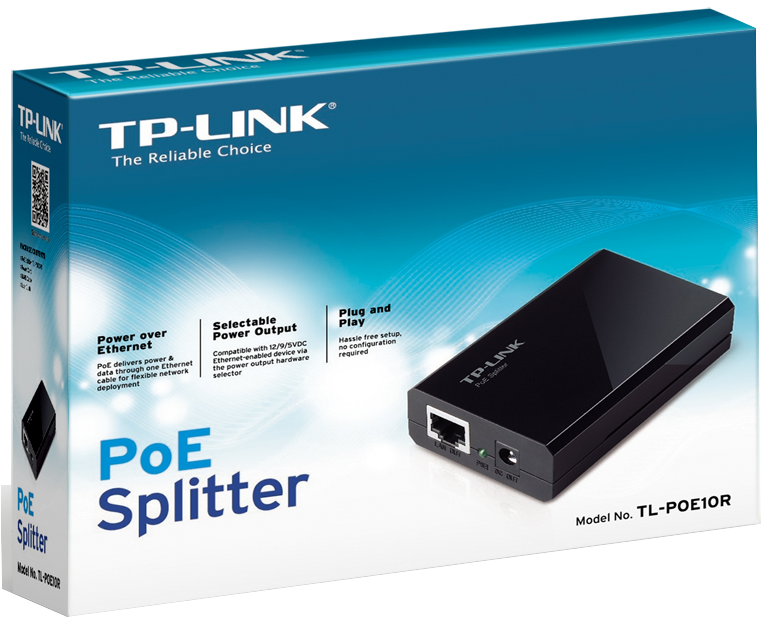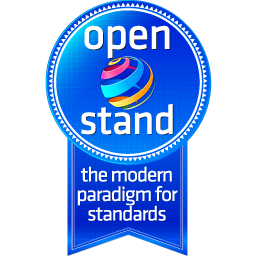Hardware Information
 Ubiquiti UniFi AP AC-PRO, ac1300/n450
Ubiquiti UniFi AP AC-PRO, ac1300/n450| Dimensions | ∅196.7 x 35 mm |
| Environment | Indoor/Outdoor |
| 2.4 GHz Speed | 450 Mbps |
| 5 GHz Speed | 1300 Mbps |
| PoE Mode | 802.3af PoE/802.3at PoE+ |
| Ports | (2) 10/100/1000 Ethernet |
Quellen/Source:
- www.ubnt.com/unifi/unifi-ap-ac-pro/
- WLAN 802.11
-
-
-
Network bonding types
| active-backup | Active-backup policy: Only one slave in the bond is active. A different slave becomes active if, and only if, the active slave fails. The bond's MAC address is externally visible on only one port (network adapter) to avoid confusing the switch. This mode provides fault tolerance. The primary option affects the behavior of this mode. |
| balance-xor | XOR policy: Transmit based on [(source MAC address XOR'd with destination MAC address) modulo slave count]. This selects the same slave for each destination MAC address. This mode provides load balancing and fault tolerance. |
| broadcast | Broadcast policy: transmits everything on all slave interfaces. This mode provides fault tolerance. |
| 802.3ad |
IEEE 802.3ad Dynamic link aggregation. Creates aggregation groups that share the same speed and duplex settings. Utilizes all slaves in the active aggregator according to the 802.3ad specification.
|
| balance-tlb |
Adaptive transmit load balancing: channel bonding that does not require any special switch support. The outgoing traffic is distributed according to the current load (computed relative to the speed) on each slave. Incoming traffic is received by the current slave. If the receiving slave fails, another slave takes over the MAC address of the failed receiving slave.
|
| balance-alb | Adaptive load balancing: includes balance-tlb plus receive load balancing (rlb) for IPV4 traffic, and does not require any special switch support. The receive load balancing is achieved by ARP negotiation. The bonding driver intercepts the ARP Replies sent by the local system on their way out and overwrites the source hardware address with the unique hardware address of one of the slaves in the bond such that different peers use different hardware addresses for the server. |
Source:
Internet but can't find it any more
Add a comment
 Produktfunktionalitäten
Produktfunktionalitäten
Der PoE-Splitter TL-POE10R ist voll kompatibel zum IEEE802.3af-Standard und kann mit allen IEEE802.3af-PoE-kompatiblen PSEs (Power Source Equipments) oder PoE-Supplier-Adaptern wie dem TL-SF1008P oder TL-POE150S von TP-LINK oder mit anderen, gleichwertigen Produkten verwendet werden, um 12V, 9V oder 5V Gleichspannung dorthin zu liefern, wo es keine Stromleitung oder Steckdosen gibt, und wo Sie Geräte wie APs, IP-Kameras oder IP-Telefone einsetzen wollen.
Add a comment Cisco RV016 Multi-WAN VPN Router
Cisco RV016 Multi-WAN VPN Router
Basic Question, how to reset a Cisco RV016?
Basic Question, how to access a resetet/new RV016
Connect only the PC to the Switch / no connection to a router
Reboot your Computer with DHCP enabled
| http://192.168.1.1 |
admin an admin to access
Wo muß das graue Sideband - Kabel angeschlossen werden?
Das interne Adaptec mini-SAS x4 to (4x) SATA Fanout Kabel verfügt über ein zusätzliches graues 8-poliges Kabel mit 10-poligem Stecker. Wo wird dieses Kabel angeschlossen?
Read more: adaptec 6405E - Wo muß das graue Sideband - Kabel angeschlossen werden?
Subcategories
Router Article Count: 19
Switch Article Count: 1
NAS / SAN Article Count: 4
Gadgets Article Count: 33
Gadget (englisch für Apparat, technische Spielerei oder auch Schnickschnack) bezeichnet ein technisches Werkzeug oder Gerät mit bisher so nicht bekannter Funktionalität und/oder besonderem Design. Es ist traditionellerweise klein und handlich und zum Mitführen konzipiert. Eine große Rolle spielt der Spaßfaktor eines Gadgets: Geräte, die sich als Gadget definieren, sind oft Grenzgänger zwischen sinnvoller Funktionalität und Verspieltheit.Der Duden definiert Gadget als „kleiner, raffinierter technischer Gegenstand“.
DCIM Article Count: 10
iot Article Count: 117
- Anker 575 USB-C Docking Station (13-in-1), 85W für Laptops
- Perfect Server Hardware for Virtualization | Proxmox | pve-05
- Pioneer Blu-Ray/BD/DVD/CD Reader/writer USB 3.0 BDR-XD07TB | WORKS OK with Debian 11
- NOT WORKING WITH DEBIAN 11 | Dockingstation | IcyBox 14-in-1 USB Type-C | IB-DK2262AC
- How to remove systemd services
- Laptop | Lenovo | Thinkpad E15 Gen3 AMD
- Laptop | Lenovo | LENOVO-IDEA IdeaPad 3 15IGL05 Notebook (15.6 ", 128 GB SSD, Business Black)
- D. Klimo | Kent monoblocks
- TTN Mapper
- LILYGO TTGO T-Beam V1.1 ESP32 LoRa 868Mhz GPS 18650 Board
- LILYGO® TTGO T-Beam 868MHz -> The Things Network (TTN/TTS) -> Karte | Infos und Video bei Alex (www.aeq-web.com)
- Kabelfarben 3.3V, 5V, 12V, 230V | Durchmesser
- 01 Digi-Bee Stand01 Wetter
- Solar Panel | 6V 3W Solar Panel JY D145x145
- TTGO LoRa32 V2.1_1.6 version 433/868/915Mhz ESP32 LoRa OLED 0.96 Inch SD Card Bluetooth WIFI wireless Module ESP-32 SMA
- -pve-04 | Disk SSD and HDD
- DISK SSD | 1 TB | Samsung SSD 870 EVO 1TB - 1TB
- NanoVNA V2
- CubeSat | antennas |
- KoZo_GS3_433MHz
- tinyGS - shortcut what it means
- TinyGS Telegram community | published Links
- Wolfgang W. Osterhage (Springer Verlag Sachbuch 2021): Die Geschichte der Raumfahrt | (gefundene Fehler)
- ucs Univention some commands
- SMA-Stecker / SMA-Buchse

 Auf Docker Hub liegen abertausende Container-Images – und mehr als 10.000 davon enthalten eigentlich geheime Zugangsdaten.
Auf Docker Hub liegen abertausende Container-Images – und mehr als 10.000 davon enthalten eigentlich geheime Zugangsdaten.
 Wackelige US-Datentransfers, kontroverse EuGH-Urteile, Datenomnibus, und vieles mehr. Im c't-Datenschutz-Podcast ziehen wir eine kritische Jahresbilanz.
Wackelige US-Datentransfers, kontroverse EuGH-Urteile, Datenomnibus, und vieles mehr. Im c't-Datenschutz-Podcast ziehen wir eine kritische Jahresbilanz.
 Sicherheitspatches schließen mehrere Schwachstellen in der Entwicklungsumgebung GitLab.
Sicherheitspatches schließen mehrere Schwachstellen in der Entwicklungsumgebung GitLab.
 In der Fernwartungssoftware Connectwise ScreenConnect können angemeldete Angreifer Schadcode einschleusen. Ein Update steht bereit.
In der Fernwartungssoftware Connectwise ScreenConnect können angemeldete Angreifer Schadcode einschleusen. Ein Update steht bereit.








